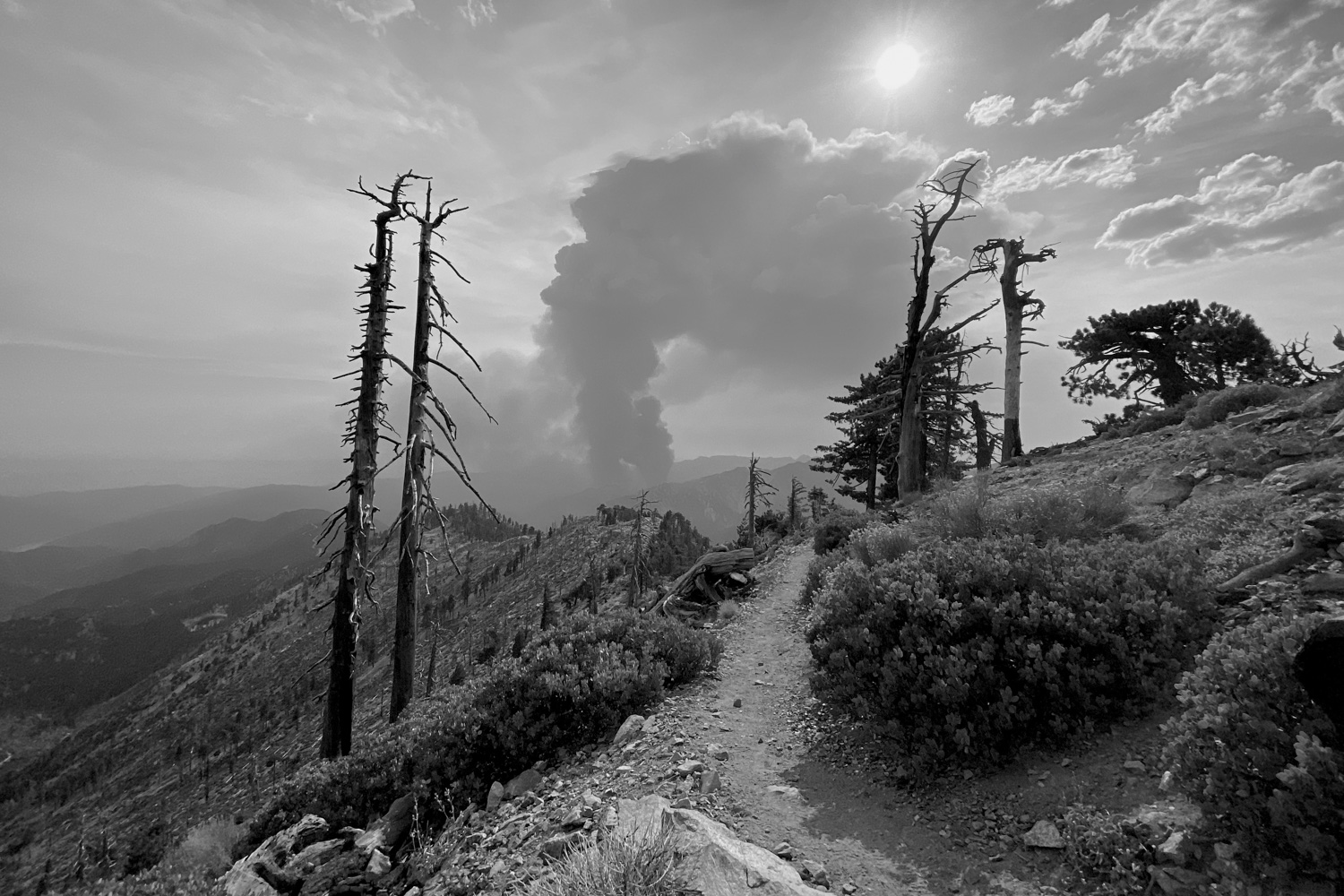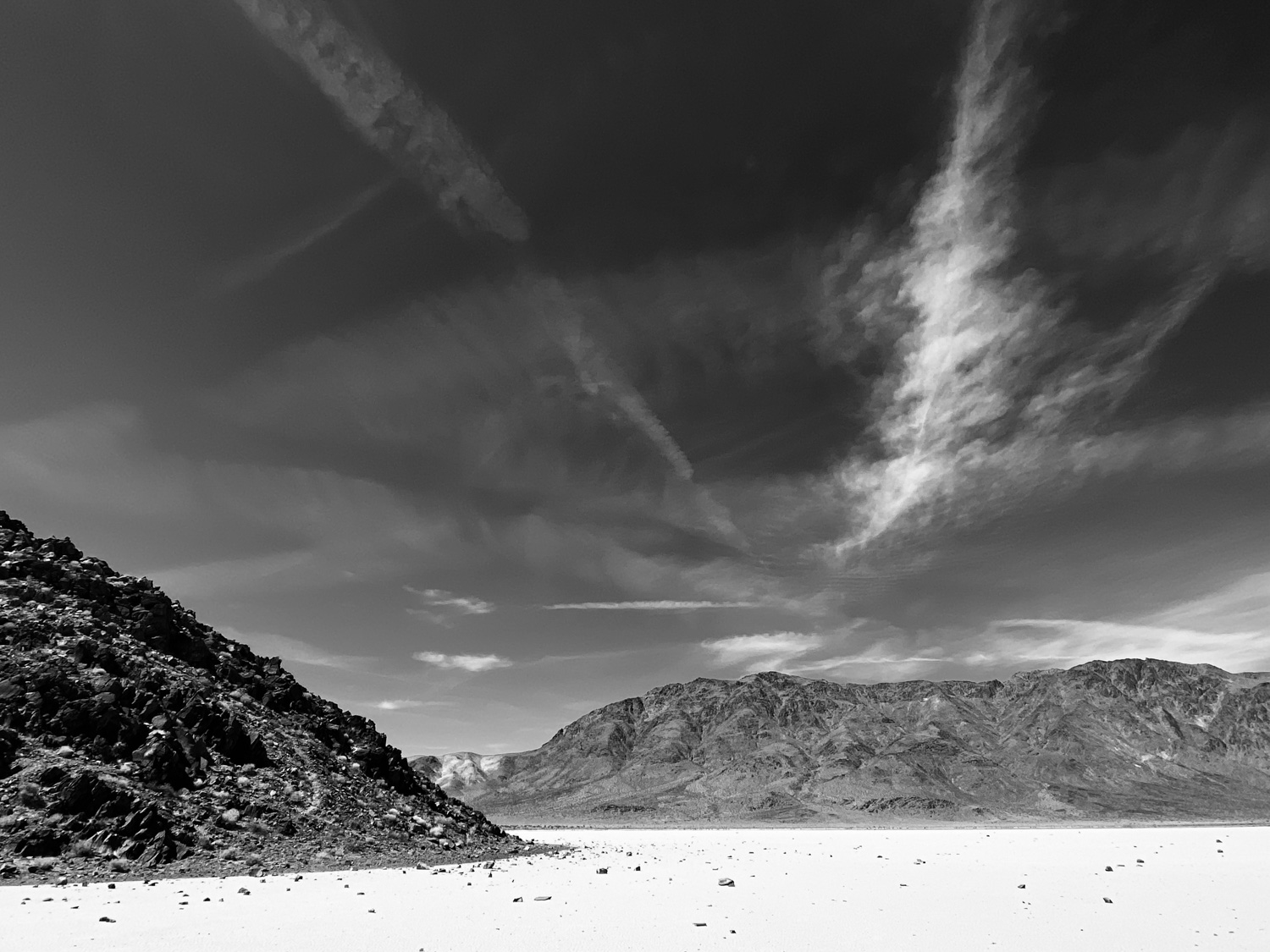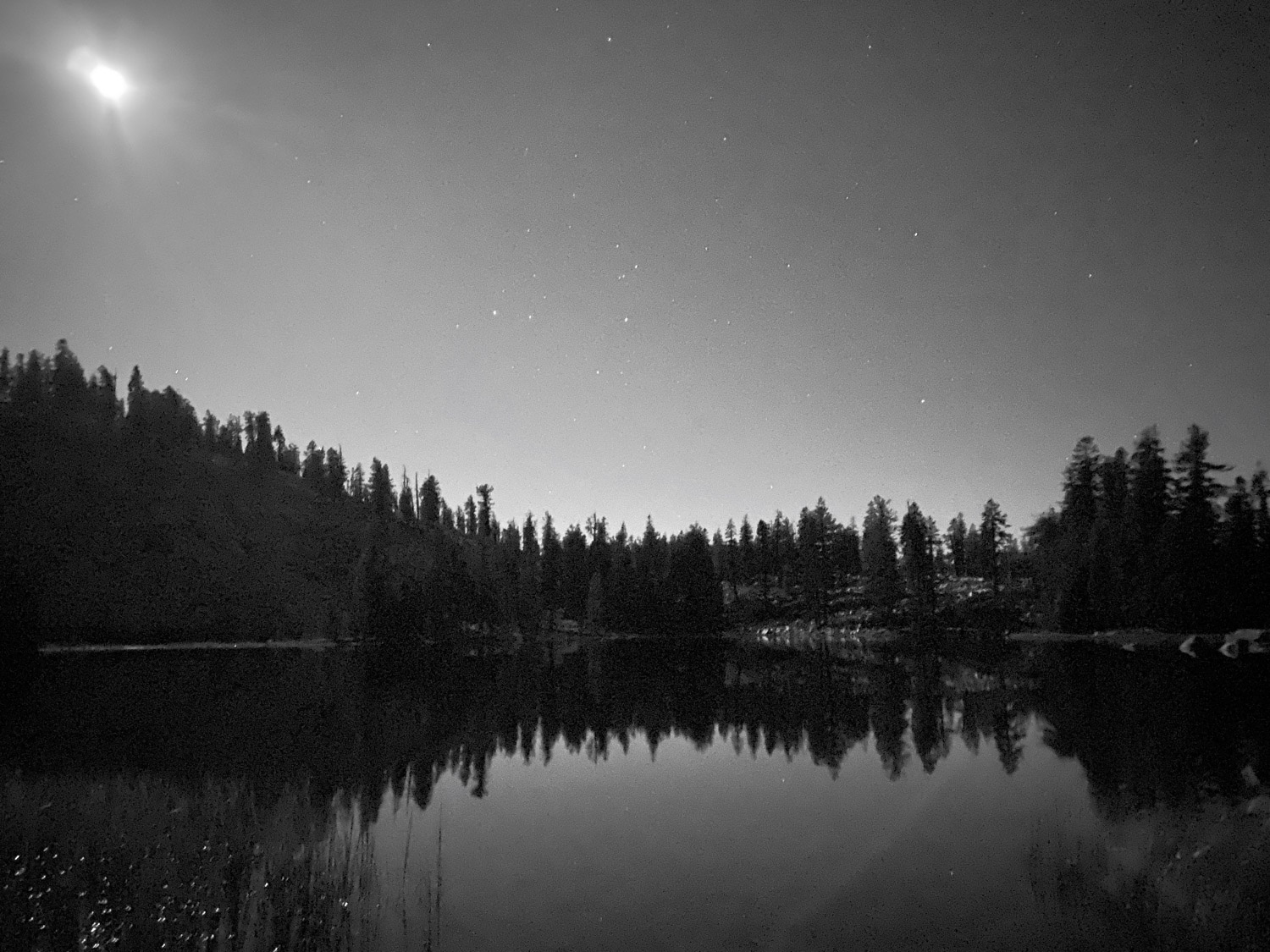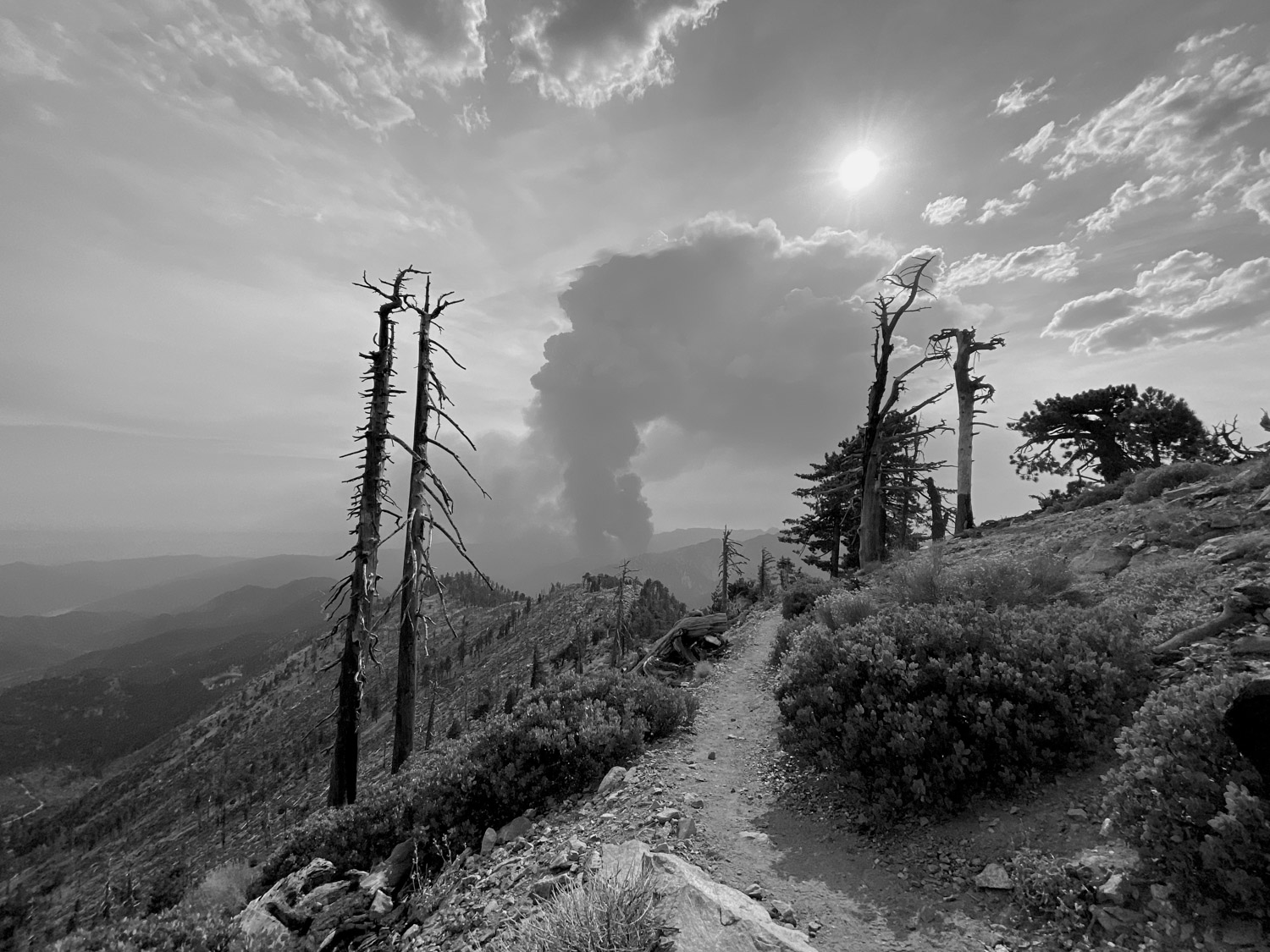Lessons from a Mid-Pandemic Bear Encounter

Lessons from a Mid-Pandemic Bear Encounter
A bear encounter while camping during the Covid-19 pandemic spurs reflection on the modern human/nature disconnect.
Words & Photos by Ana Mina
At first, I saw only a pair of glowing eyes. The sun had set hours ago, and as my camping partner relieved herself a few yards away, I watched a set of eyes reflecting back the light from my headlamp, descend from the top of the hill into our campsite. It moved like a familiar predator in the darkness.
“There’s a cat-like creature coming to visit,” I said as my partner returned. “It’s up there.”
“I think that’s bigger than a cat,” she said. I half-expected a mountain lion to emerge from the shadows. But it was a bear. A black bear, small by bear standards but massive by human ones, stared back at us from a few yards away. It was hardly visible in the dark forest, but its body shape was unmistakable.
I’d always imagined I might have a bear encounter along a trail one day, bounding out from the woods and keeping its distance. I’d imagined I would just shout and yell and look big with my hiking companions, and it would scamper back off from whence it came. I certainly never imagined it arriving at my campsite in pitch black, staring at my friend and me.
PULLED OUTSIDE BY THE PANDEMIC
Since the outbreak of COVID-19, options for going out into the world have steadily slimmed down. Consequently, more and more people are going outdoors. The US’s parks and forests have seen record attendance, with trails and campsites filled every day, even in peak summer heat.
I’ve been one of these people seeking refuge outdoors and gearing up for activities. Backpacking was one of the few ways I could escape the pandemic for a while, where we could wander around without a mask and touch things without sanitizing, and distance ourselves from the news.

Since the pandemic broke out, I’ve purchased a 45L backpack (with a 10L extension for longer trips), a 18ºF sleeping bag and self-inflating foam pad, a miniature stove, a 3L gravity-powered water filter and a hiking pole. We’ve gone camping up and down California now, with long road trips and pop-up tents replacing the long-distance plane rides and hotel rooms of my pre-pandemic life.
Another such purchase was rope: 50 feet of nylon rope with a purported ability to carry 250 pounds—perfect for tethering a bear bag far off the ground.
AS HUMANS ENCROACH, BEARS LEARN NEW TRICKS
Just minutes before the bear arrived at our site, we’d managed to get the rope around a branch nearly 30 feet off the ground and more than 8 feet from the tree trunk. We tied it up using a carabiner and a twig—a technique popularly attributed to PCT hikers that’s designed for bears who had long since figured out that they could simply gnaw on a bear bag rope to bring it down.
Our bear circled the perimeter of our campsite slowly, watching us and taking steady steps until it reached the rope dangling from the tree. It stepped up on its hind legs, grabbed the cord and started tugging purposefully.
The bag dropped some 15 feet, and it got caught in the carabiner. The bear let go, and then tugged again. On and on it went, the sound of the bag and the rope breaking the quiet night.

After what felt like an eternity, the bear switched tactics and started climbing the tree. In awe, we watched it shoot up 30 feet like Spider Man, its strong claws digging into the pine. It arrived at the edge of the branch and reached out its paw, unable to fully extend to the bag.
While the ostensible goal of bear technology (including bear bins and canisters) is to protect human food and therefore humans, it also serves to protect the bears. By making it possible for bears to smell the food but impossible for them to access it, bear bins and canisters aim to teach bears a lesson: there’s nothing to be found here, no matter how hard you try.
Bear technology, in other words, is a response to an increasingly larger mass of humans encroaching on our natural environments. Where once the simple presence of humans would scare a bear off, bears have now learned that humans mean food is nearby.
NATURE CONTINUES TO TEACH US HUMILITY
As the bear slowly descended the tree and began tugging at the rope again, I thought about all the campers who’d been to this site before with power bars and bags of camping food. I thought about the 20 miles within a bear’s olfactory range. I thought about it watching us from somewhere up the hill, waiting till we’d finished tying the rope so it could try to get to the food.
I could feel the vulnerability of my body, fully adapted to modern urban life. Yet even with all my access to technology and all my knowledge of science and the natural world, I stood helpless in the face of a bear shaking a bag of food.
Like the coronavirus, death by a black bear is statistically unlikely, but that didn’t stop my knees from trembling.
If COVID-19 has taught us anything, it is that the sheen of urbanization and orderly borders and reliable supplies of food can be toppled swiftly—even by a tiny virus. The very global interconnectedness we’ve built has become, among other things, a pathway for the virus to reach the entire world in a matter of months. More broadly, the summer surge in wildfires, heat waves, and floods that have devastated global societies have been a brutal reminder of our own fragility in the face of climate change.
It’s easy to believe that modern life has eliminated archaic stressors of wild animal encounters; that we are safer now, and nature is simply a place for healing and stress relief. But as humans make the world less habitable for every other species, we are becoming more vulnerable—not less.

Snorkeling in the Yucatán Peninsula last year woke me up to the reality that I am just a bag of flesh in this big, big world. The whale sharks, the barracudas, the stingrays, eels…all moved effortlessly while I struggled underwater. This is not my world, I thought to myself.
I had the same feeling when the Bobcat Fire broke out in front of our eyes in California’s Angeles Forest. Again, when a sandstorm interrupted our hike up the Eureka Dunes of Death Valley, followed by a snowstorm. Again, when cirrus clouds rolled in on our backcountry site in Joshua Tree, bringing with them 30 mph winds.
The bears come wandering in, ready to puzzle open our food stashes, winds can pick up unexpectedly, rain can crash down. Beneath our city streets, there is dirt and rock and magma churning, ready to one day topple what we’ve built.
SAYING BYE TO THE BEAR—BUT NOT THE LESSONS
The day after our bear encounter, we looked at the campsite more carefully. The litter we’d thought was left behind by careless humans was in fact shredded by bears. Food wrappers and cans of tuna, ripped open and scattered along the campsite, up and down the hills. I’m pleased to say our knots held up through the night.
We helped another set of campers—a father and his young daughter—move their tent closer to ours. They’d kept their distance earlier in the day, not really bothering to say hello, but in the shared stress of a bear prowling our campsite, we enjoyed a moment of solidarity and comfort.
I suspect we feel safer sleeping in large groups of people, because that’s what affords safety in hunter-gather societies. This is still how people live in much of the world, with large family ties and shared support networks. Another aspect of the pandemic deepening our isolation, has been the reminder us of the value of being together. We will need all these lessons on humility, forgotten wisdom, and the necessity of cooperation, to move forward in a fracturing world.
I woke again before dawn to hear a bear (maybe the same one) snuffling around by our tent, but I was no longer scared. I understood its plight, interconnected with my own. I wished it well and rolled over in my sleeping bag. Despite the adrenaline from the evening, sleep came easily.
Ana Mina is a writer and artist who looks at notions of time, technology and climate in her work.
Be the first to comment